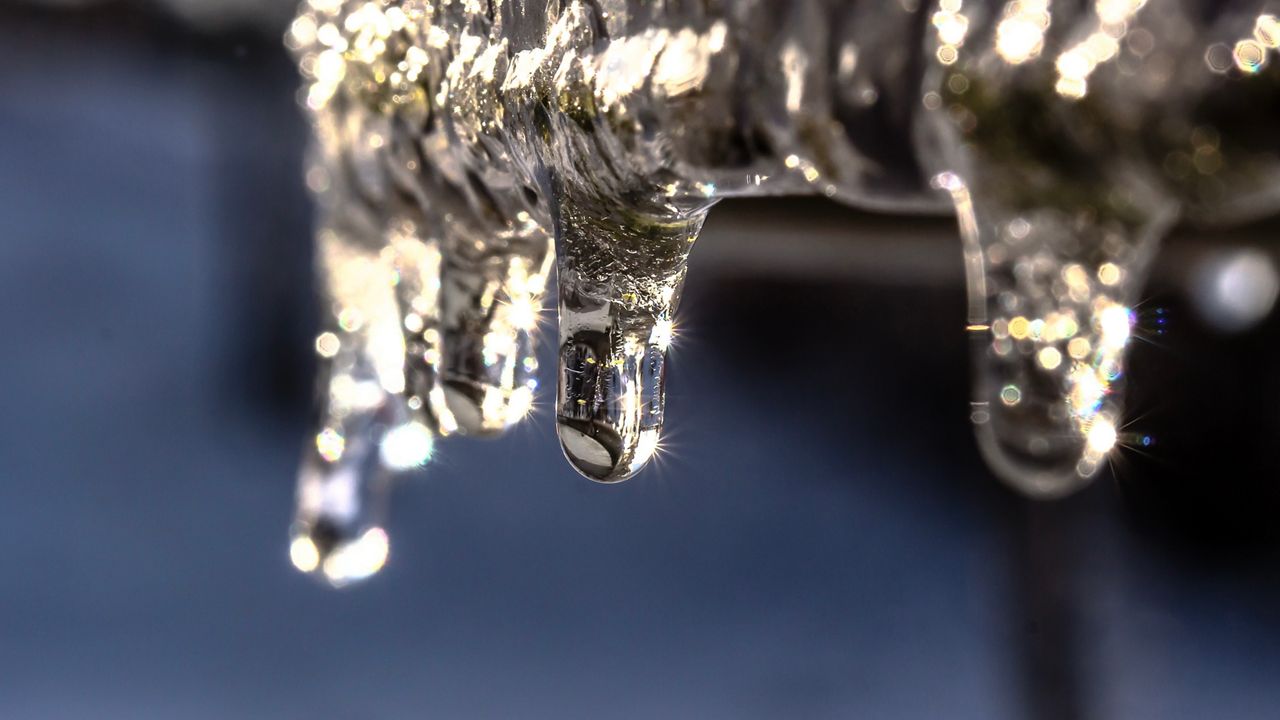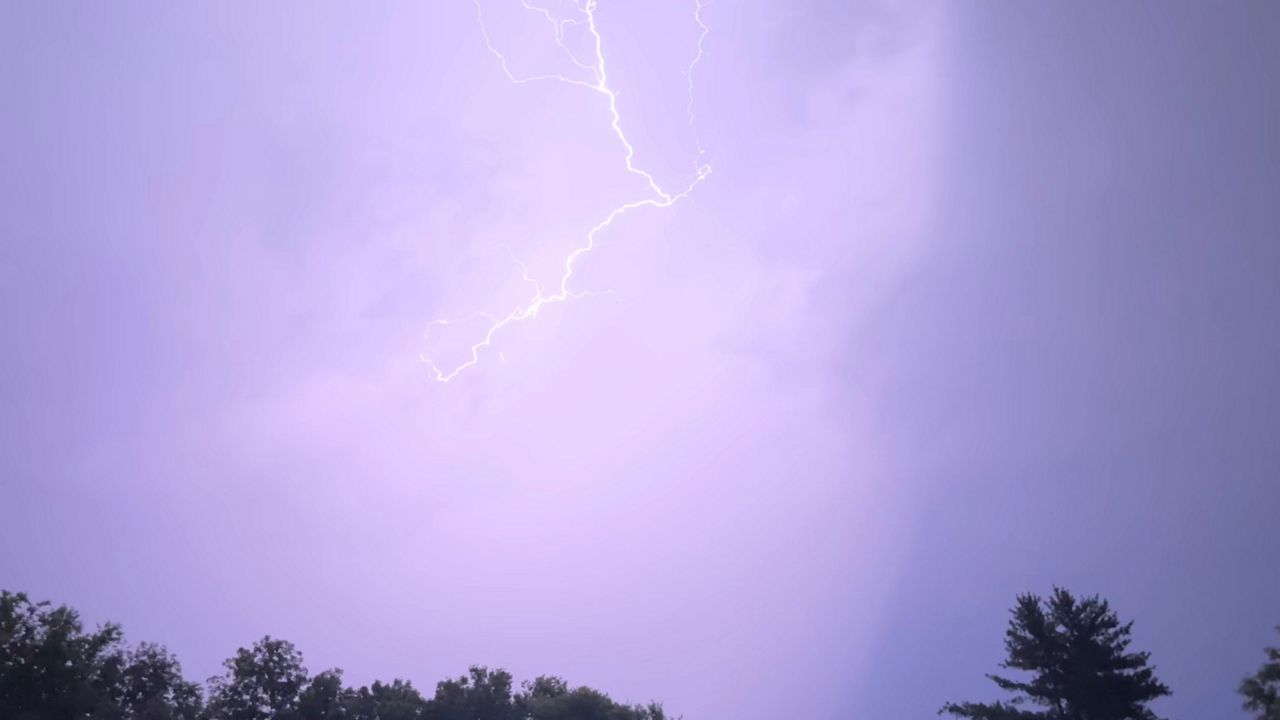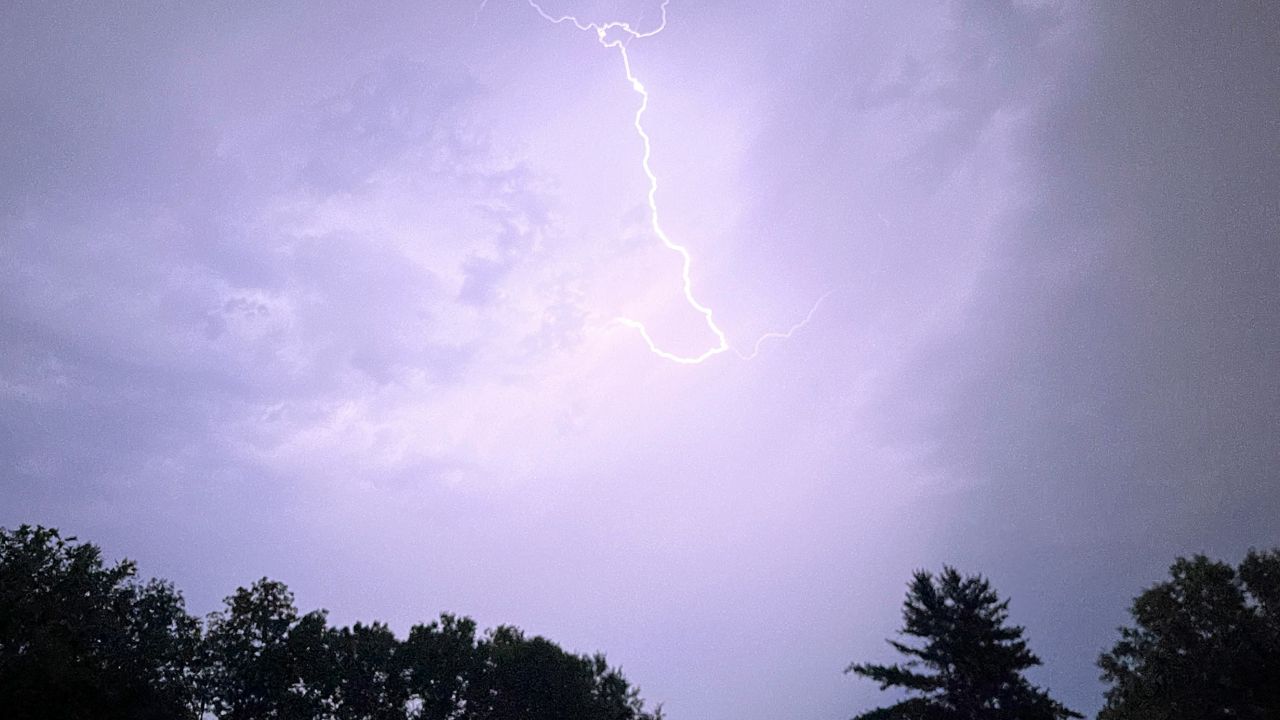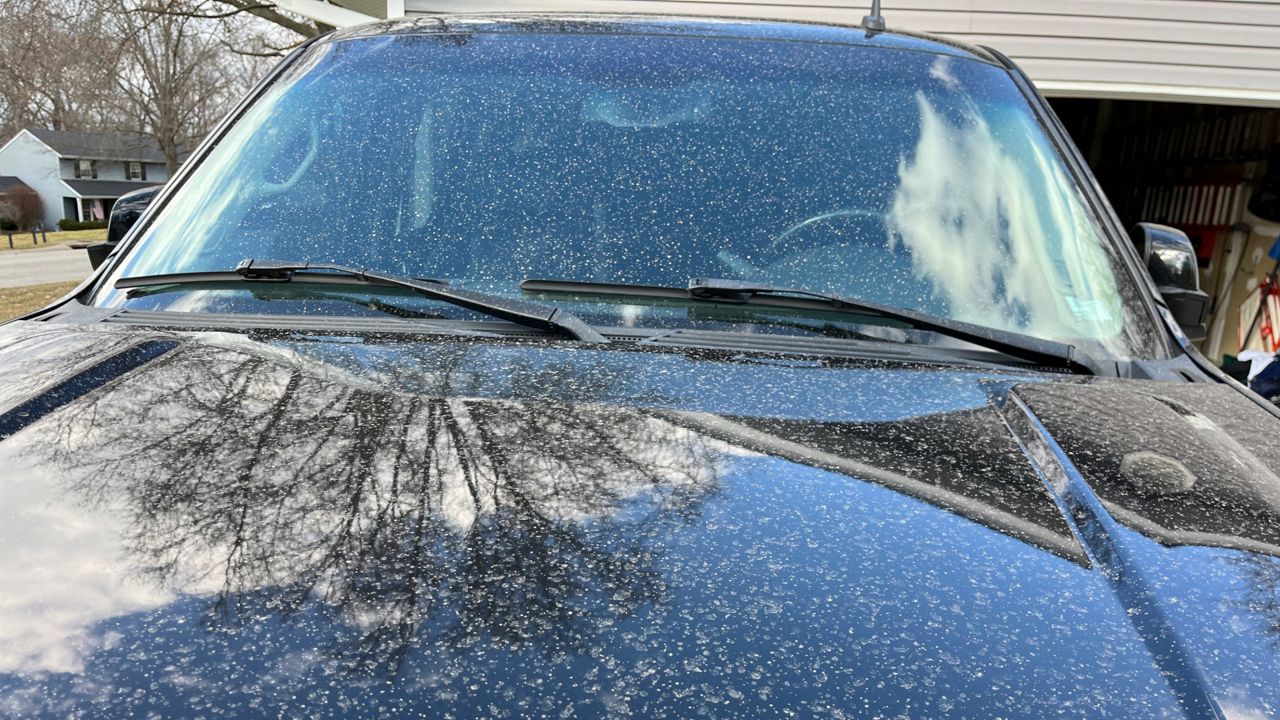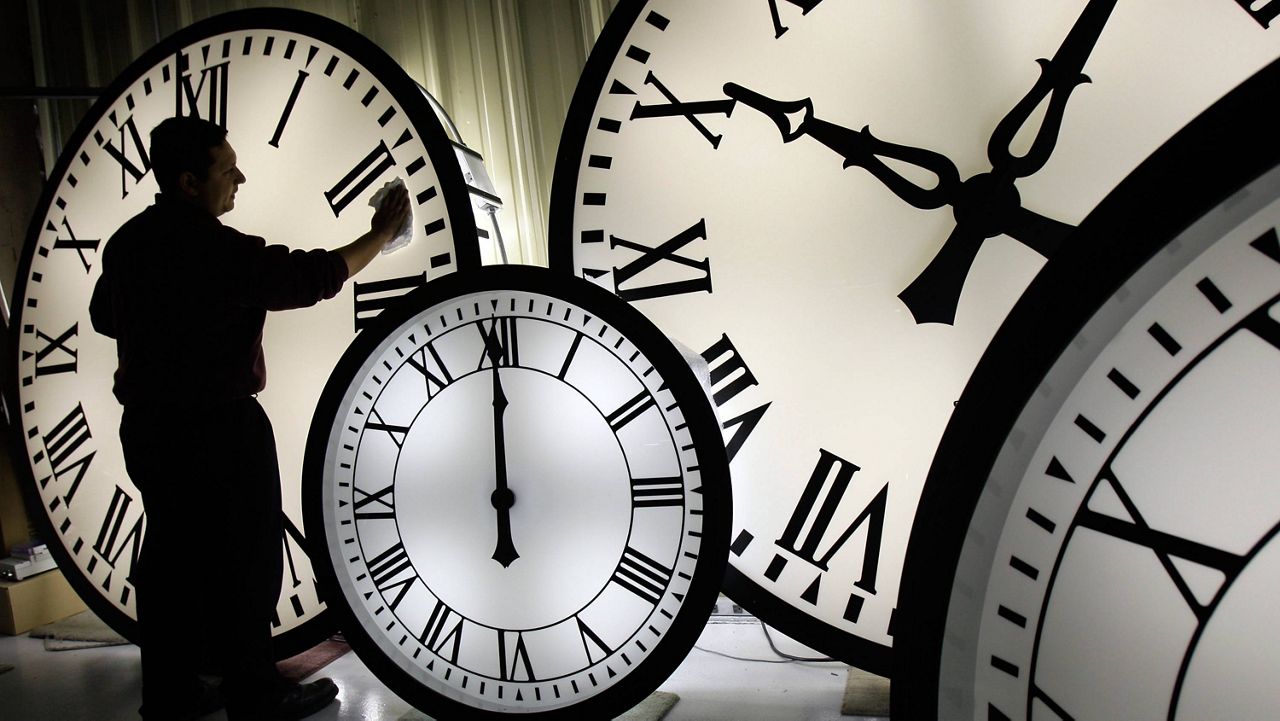Freezing rain will mix with rain and eventually transition over to all rain.
Temperatures around the metro are slow to warm and thanks to the cold air of the weekend, ground temperatures will be slow to warm as well. Expect slick roads through mid-afternoon.
The duration of the ice will be related to how quickly the temperatures at the surface warm above freezing. Wintry precipitation is expected to mix with and then change over to all rain this afternoon.

Winter Weather Advisories are in effect through this evening.
There will still be slick spots through mid-afternoon. Once the lower levels warm above freezing, we will see the changeover to just plain rain.
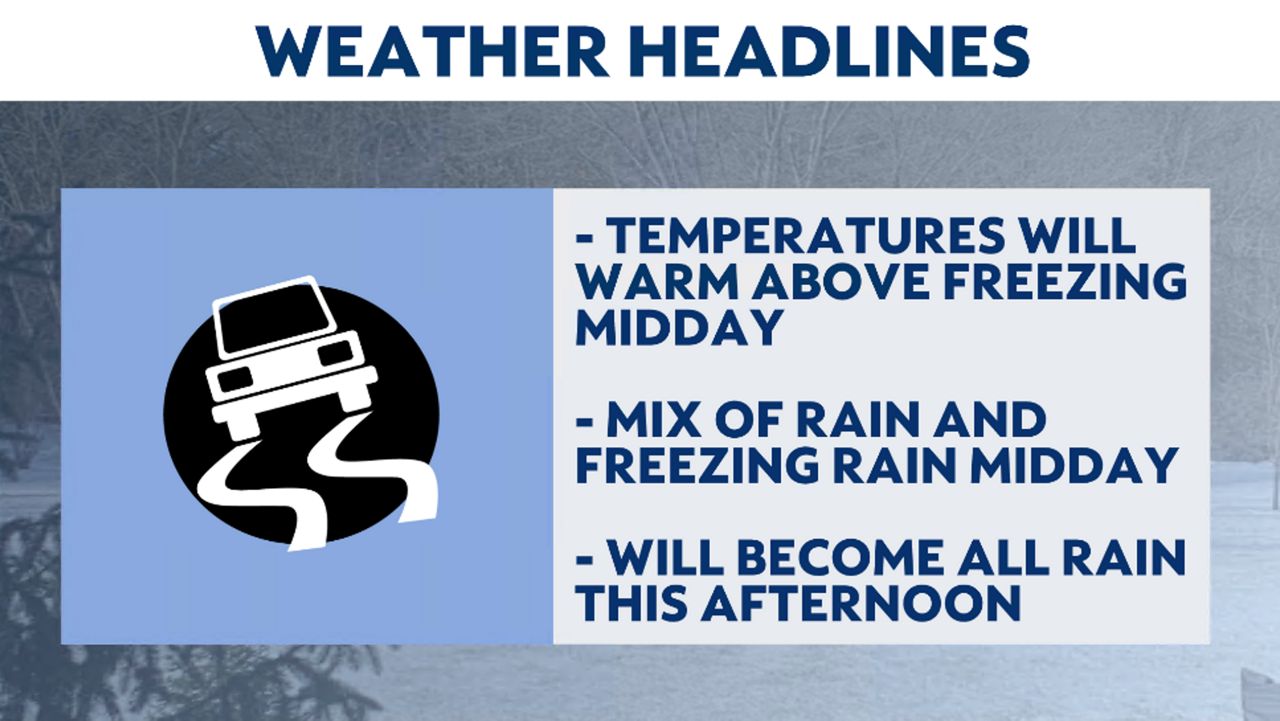
Melting on less traveled roads will take longer, so use caution if you have to be out.
Many types of precipitation begin way up in the clouds as snow, where the air is cold. As the snow falls through the layers it either encounters warm air or the air stays cold.
If the column of air is below freezing all the way to the surface, this will fall as snow. If the surface is below freezing, the snow will stick to the ground.
Inversely, if the column of air is warm down to the surface, the snowflake will melt and fall as a liquid–that is, rain.

Sleet occurs when the falling snowflake encounters warm air to melt to liquid, but a layer of colder air exists above the surface. The water droplet will refreeze into an ice pellet, or sleet. If the ground is freezing or colder, sleet will accumulate and can create slick spots.
Freezing rain will start as snow, encounter the warmer layer and melt into liquid. Then right before the ground, it will encounter a shallow layer of cold air and with the surface being at freezing or below, these liquid drops will freeze on impact.
The most dangerous thing about freezing rain is that it is difficult to decipher from regular falling rain. The biggest difference will be the sound it makes as it hits the surface, you can hear a freezing sound.
Freezing rain can create icy spots on untreated roads and it is difficult for motorists to hear the freezing sound. What may look like a wet road could actually be a frozen road.
Our team of meteorologists dives deep into the science of weather and breaks down timely weather data and information. To view more weather and climate stories, check out our weather blogs section.




